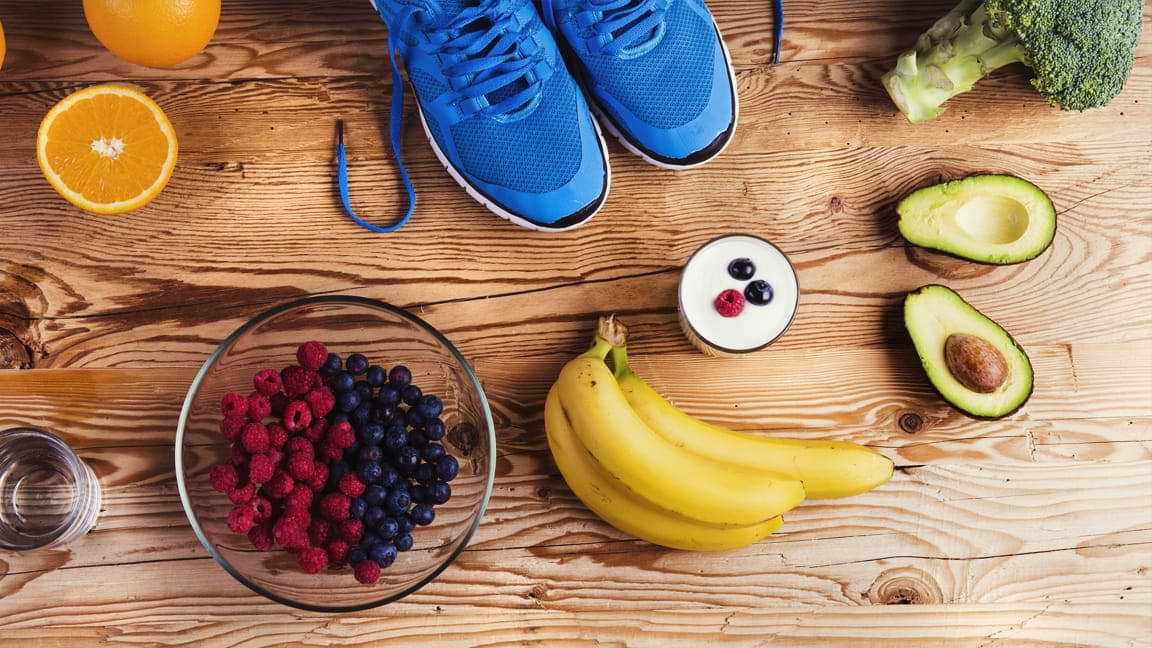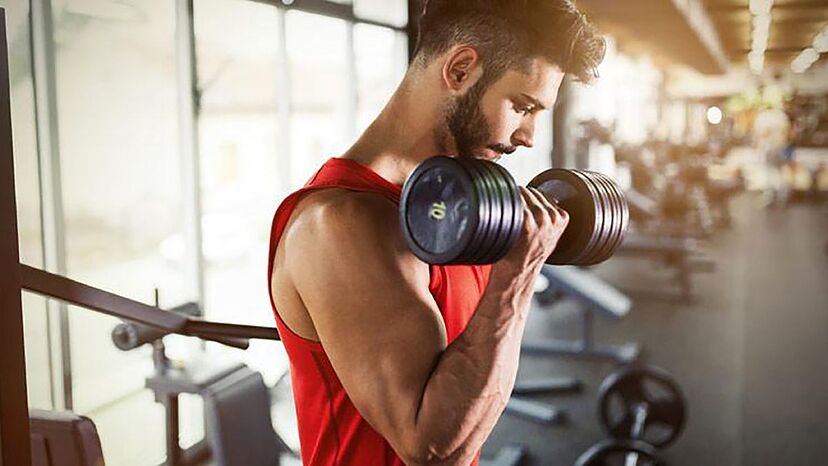
Eating for Energy: Pre-Workout Snacks to Power Your Performance
Fueling your body before a workout is like filling up your car’s gas tank before a long trip—you need the right kind of fuel to go the distance. The right pre-workout snack can make a significant difference in your performance, energy levels, and overall results. But what exactly should you eat before hitting the gym or going for a run? Let’s dive into the essentials of pre-workout nutrition and discover some tasty snacks that can power your performance.
Understanding Pre-Workout Nutrition
Before we get into specific snacks, it’s important to understand the role of macronutrients in pre-workout nutrition. Your body primarily needs carbohydrates, proteins, and fats to function properly, each playing a unique role in fueling your exercise.
The Role of Macronutrients
- Carbohydrates: These are your body’s preferred energy source, especially for high-intensity workouts. They break down into glucose, which your muscles use for fuel.
- Proteins: Essential for muscle repair and growth, proteins can also provide a small amount of energy.
- Fats: While not the primary source of energy for most workouts, fats offer sustained energy for longer, low-intensity activities.
Timing Your Pre-Workout Snack
The timing of your pre-workout snack is crucial. Ideally, you should eat a balanced snack containing carbs and protein about 30 to 60 minutes before your workout. This allows enough time for digestion and for the nutrients to start fueling your body.
Carbohydrates: The Energy Powerhouse
Carbohydrates are your body’s go-to energy source. When you consume carbs, they are converted into glucose and stored as glycogen in your muscles and liver. During your workout, this glycogen is broken down to fuel your activity.
Why Carbs Are Essential
Without sufficient carbs, you might find yourself running out of steam halfway through your workout. They are especially important for high-intensity activities where quick energy is needed.
Best Carbohydrate Sources
- Whole grains: Oats, quinoa, and whole grain bread.
- Fruits: Bananas, apples, and berries.
- Starchy vegetables: Sweet potatoes and corn.

Proteins: The Building Blocks
Proteins are vital for repairing and building muscle tissues. Consuming protein before a workout can help minimize muscle damage and promote recovery.
Importance of Protein Before a Workout
Protein provides amino acids, which are the building blocks for muscle repair and growth. Including protein in your pre-workout diet snack can help you maintain muscle mass and support recovery.
Optimal Protein Sources
- Lean meats: Chicken, turkey, and lean beef.
- Dairy: Greek yogurt, cottage cheese, and milk.
- Plant-based: Beans, lentils, and tofu.
Fats: The Sustained Energy Source
While fats are not the primary source of energy for most workouts, they play an important role in sustained energy for longer, low-intensity activities.
Role of Healthy Fats
Healthy fats provide long-lasting energy and are crucial for overall health. They also help in the absorption of fat-soluble vitamins.
Best Fat Sources for Pre-Workout
- Nuts and seeds: Almonds, chia seeds, and flaxseeds.
- Avocado: Adds healthy fats and is easy to digest.
- Olive oil: A great addition to a pre-workout meal or snack.
Hydration: The Forgotten Element
Staying hydrated is just as important as eating the right foods. Dehydration can lead to decreased performance, fatigue, and even injury.
Importance of Staying Hydrated
Water helps regulate your body temperature, lubricate your joints, and transport nutrients to give you energy. Aim to drink water consistently throughout the day and have a glass about 30 minutes before your workout.
Tips for Proper Hydration
- Carry a water bottle with you.
- Drink small amounts frequently instead of large amounts infrequently.
- Consider sports drinks for long, intense workouts to replace electrolytes.
Quick and Easy Pre-Workout Snacks
When choosing a pre-workout snack, it’s important to keep it simple and balanced. You want something that is easy to digest and provides a good mix of carbs and protein.
Criteria for a Good Pre-Workout Snack
- Easily digestible
- Balanced in carbs and protein
- Consumed 30-60 minutes before a workout
Examples of Quick Snacks
- A banana with a handful of almonds
- Greek yogurt with honey and berries
- Whole grain toast with peanut butter
- A small smoothie made with fruit and protein powder

Homemade vs. Store-Bought Snacks
There’s always a debate about whether homemade snacks are better than store-bought options. Both have their pros and cons.
Benefits of Homemade Snacks
- You control the ingredients
- Can be tailored to your dietary needs
- Often cheaper in the long run
Best Store-Bought Options
- Energy bars (look for those with natural ingredients)
- Pre-packaged trail mix
- Single-serve Greek yogurt cups
- Nut butter packets
Timing Your Pre-Workout Snack
The timing of your snack can affect how well it fuels your workout. Eating too early or too late can both have downsides.
How Long Before a Workout to Eat
For most people, eating 30-60 minutes before a workout is ideal. This gives your body enough time to digest the food and start using it for energy.
Adjusting Timing Based on Workout Intensity
- High-intensity workouts: Stick to the lower end of the timing range (30 minutes).
- Low-intensity workouts: You might be able to eat closer to 60 minutes before.
Snacks for Different Types of Workouts
Different workouts require different types of fuel. Here are some snack ideas based on the type of exercise you’ll be doing.
Cardio Workouts
- A slice of whole grain toast with honey
- An apple with a handful of nuts
Strength Training
- Greek yogurt with a drizzle of honey
- A protein smoothie with banana and spinach
High-Intensity Interval Training (HIIT)
- A banana with a small scoop of peanut butter
- A small bowl of oatmeal with berries
Pre-Workout Snack Recipes
If you’re into cooking, here are some easy recipes to try at home that are perfect for pre-workout nutrition.
Easy Recipes to Try at Home
- Energy Bites: Combine oats, honey, peanut butter, and chocolate chips. Roll into balls and refrigerate.
- Smoothie Bowl: Blend frozen berries, banana, and a splash of almond milk. Top with granola and chia seeds.
- Avocado Toast: Spread mashed avocado on whole grain toast. Sprinkle with salt and pepper.
Nutritional Breakdown of Each Recipe
- Energy Bites: High in carbs and protein, perfect for a quick energy boost.
- Smoothie Bowl: Packed with vitamins, minerals, and antioxidants.
- Avocado Toast: Rich in healthy fats and fiber, great for sustained energy.

Common Mistakes to Avoid
Even with the best intentions, it’s easy to make mistakes with pre-workout nutrition.
Overeating Before a Workout
Too much food can leave you feeling sluggish and bloated. Stick to a small, balanced snack.
Ignoring Food Intolerances
Pay attention to how your body reacts to different foods. Avoid anything that might cause discomfort during your workout.
Listening to Your Body
Everyone is different, and what works for one person might not work for another. It’s important to listen to your body and adjust your pre-workout nutrition as needed. If you’re looking for a great place to exercise, consider the best gym in Mohali to ensure you have access to top-notch facilities and expert guidance.
How to Adjust Based on Personal Needs
Experiment with different snacks and timing to see what gives you the best results. Keep a food journal to track what works and what doesn’t.
Signs of Good Pre-Workout Nutrition
- Steady energy levels
- No stomach discomfort
- Improved performance
Conclusion
Pre-workout nutrition is a key component of your fitness routine. The right snacks can fuel your body, enhance your performance, and help you reach your fitness goals. Experiment with different foods and timings to find what works best for you, and remember to listen to your body’s signals.







